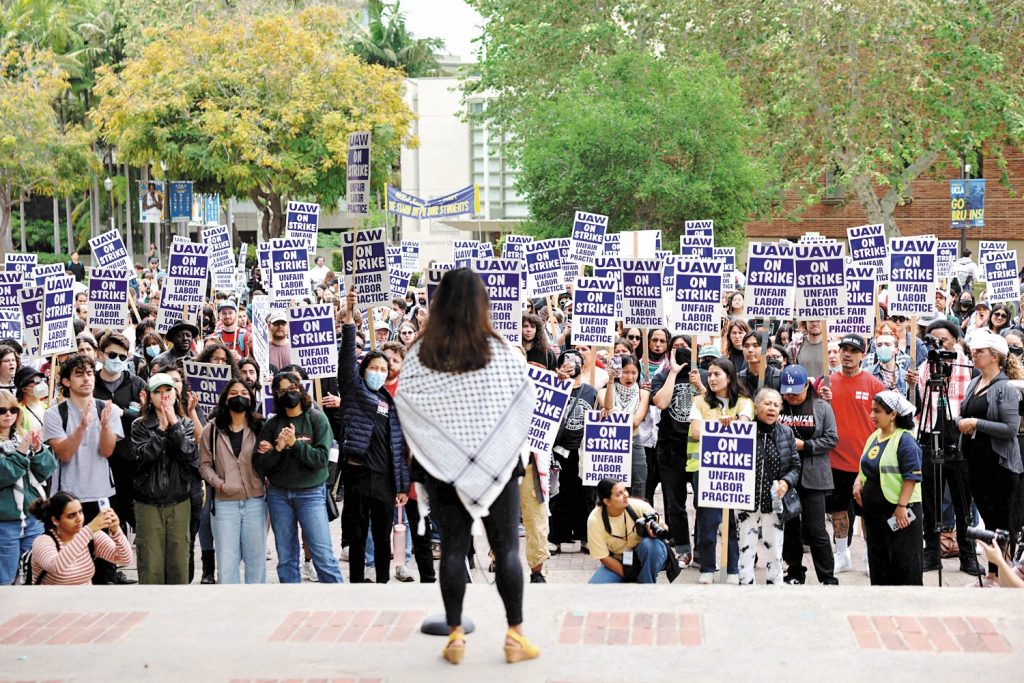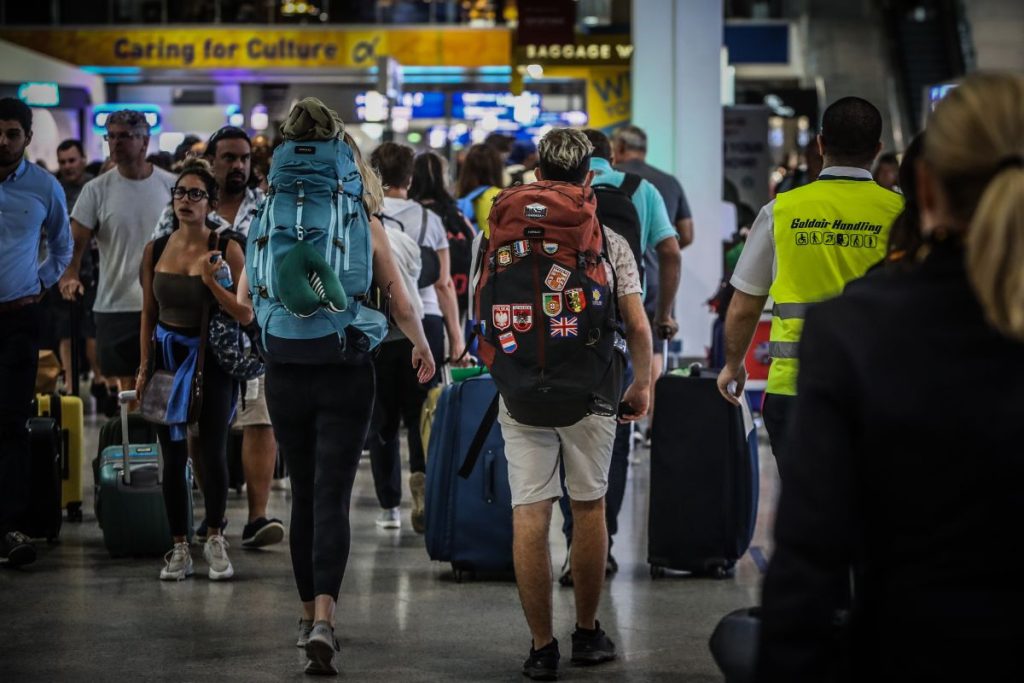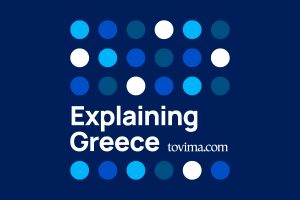A late-spring Saturday was shaping up to be a proud day for James Carson and his family. A graduate student at Syracuse University (SU), Carson was set to deliver the student address at his graduation ceremony, an honor granted to the most distinguished students. After three exhausting years of an accelerated undergraduate and masters program, Carson got to walk the stage first. But on that day, the celebrations coincided with a call for action.
The chants of pro-Palestinian supporters echoed across the campus at Syracuse University—a college of 25,000 students in central New York State. One week before, student protesters had pitched dozens of tents on campus to protest the war in Gaza, hoping to attract national attention.
“Universities tend to get more spotlight than other areas, so students can raise more awareness for their causes,” said Carson.
Students Take Center Stage
A plethora of students at dozens of American universities have been protesting Israel’s ongoing attacks against Hamas, which have resulted in tens of thousands of Palestinian casualties. The protests have sparked unrest among student groups across the nation, with universities including Columbia, Barnard and the University of South Carolina canceling graduation ceremonies as a precautionary measure.
Some 3,000 students have been arrested across the nation since the protests began in early spring. Harvard University and the Massachusetts Institute of Technology (MIT), two of the most famous and expensive universities in the world, have gone as far as to suspend students for their involvement, leaving their future in limbo.
On some campuses, pro-Palestinian protests are still active, even after the end of the academic year in May. Stanford University arrested 13 protesters and removed an encampment on June 5 “in the interest of public safety.”

Unionized academic workers, upset about the University of California’s response to pro-Palestinian protests at various campuses, hold placards as they strike at the University of California Los Angeles (UCLA) in Los Angeles, California, U.S., May 28, 2024. REUTERS/Mike Blake
Hate Spills Over?
At Syracuse the protests began in late April, lasted 16 days through the end of the spring semester, and yielded mixed results at best.
“Despite being presented with detailed and urgent demands, such as the public call for a ceasefire in Gaza and divestment from companies supporting the occupation of Palestine, the university representatives responded with non-committal promises to take the demands back to their leadership,” read a statement from the Gaza Solidarity Encampment (GSE), which organized the protest, adding that they plan to return for another round of demonstrations when school resumes in the fall.
“There were a lot of people involved in this process,” said Lindzy Berdon, a biochemistry major and GSE participant. She said the encampment was managed with designated roles for gathering supplies, communicating with the press, and posting statements on campus and on social media.
“Ultimately, we were trying to achieve campus-wide solidarity and the acknowledgment of what is going on in Gaza.”
Yet despite being mostly peaceful, the demonstrations prompted widespread controversy across campus. The Daily Orange, Syracuse University’s student-run newspaper, reported that a non-SU individual was seen making Nazi gestures towards a Jewish fraternity during a rally. The individual then punched and shoved a member of the fraternity before eventually being arrested by campus police.
Aziza Zahran, a graduate student who was also involved in organizing the encampment, came under criticism for Twitter posts dating back to 2012 in which she allegedly praised the Nazi leader Adolf Hitler. The account has now been deleted.
Ronn Torrosian, a Jewish SU parent with ties to New York City Mayor Eric Adams, was arrested in May for demonstrating on campus and verbally berating pro-Palestinian students. Torrosian said he and the other parents involved were protesting the school’s inaction with regard to student safety issues including violence and anti-Semitism.
Torrosian, a New York City public relations executive and associate of Mayor Adams, confronted a student who was holding a sign saying “From the River to the Sea, Palestine Will Be Free.” University staff said he was “especially aggressive” toward students and was arrested after refusing to leave campus.
A Pending Resolution
“Syracuse University is committed to free expression and respects the rights of our community members to peacefully assemble and protest […]. What we won’t tolerate is speech or conduct that contains threats or targeted harassment as defined in our policies,” said Allen W. Groves, SU’s senior vice-president.
Some students are increasingly concerned about their safety as hate speech takes center stage.
“I thought some of the messages they were pushing out were antisemitic and made me feel unsafe as a Jewish student at SU,” said Benjamin Perle, a data analytics major at SU. “I heard from friends at NYU, USC and Columbia, places where these protests have escalated to become extremely violent, and I thought in my head this could be us.”
Since graduation week, the protests at most American universities have largely died down and it remains to be seen whether or not student encampments will return to college campuses in the fall. Much will depend on whether a ceasefire in Gaza is eventually agreed on.
Regardless, the encampments have marked a defiant return for the sort of nationwide student-run protesting that has not been seen since the Vietnam war in the 1970s.



